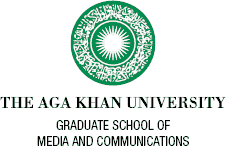Areas of Collaboration
To achieve the project goals GSMC will partner with various institutions and associations this include:
Aga Khan Foundation who will offer overall assistance and guidance, in the project through development of training and monitoring objectives across the activities. Providing access to ongoing information about various in-country activities that they have ensconced within so that the project activities are complimentary and add value or scale operations and investments made.
Association of Media Women in Kenya (AMWIK), Ugandan Women Media Association Tanzania Media Women’s Association and other women led media organisations in Uganda and Tanzania will assist with research to access women in Media for the GSMC database & mentorship programmes, co-design & creation of training & mentorship programmes.
Kenya Editors Guild (KEG) who will offer access to Women in Media & Editors in various legacy & community-based media organisations for mentorship & training purposes.
GSMC will collaborate with the Media Council of Kenya (MCK), Uganda and Tanzania which will support with information from their databases to inform the trainings and other project activities.
GSMC will work with AGECS partners in the respective countries and with any other project grantees leveraging strengths and resources to build capacity within the project & firming regional relationships.
Our Partners
 As the department responsible for Canada’s international engagement, Global Affairs Canada aims at advancing Canada’s international relations, including: developing and implementing foreign policy; fostering the development of international law, international trade and commerce; providing international assistance (encompassing humanitarian, development, and peace and security); ensuring Canada’s strong and sustained engagement in La Francophonie’s institutions; providing consular services for Canadians and overseeing the Government of Canada’s global network of missions abroad.
As the department responsible for Canada’s international engagement, Global Affairs Canada aims at advancing Canada’s international relations, including: developing and implementing foreign policy; fostering the development of international law, international trade and commerce; providing international assistance (encompassing humanitarian, development, and peace and security); ensuring Canada’s strong and sustained engagement in La Francophonie’s institutions; providing consular services for Canadians and overseeing the Government of Canada’s global network of missions abroad.
Global Affairs Canada manages Canada’s diplomatic and consular relations with foreign governments and international organizations, engaging and influencing international players to advance Canada’s political, legal and economic interests, including poverty reduction, the empowerment of women and girls, the promotion of a rules-based international order, international peace and security, human rights, inclusive and accountable governance, peaceful pluralism, inclusion and respect for diversity, and environmental sustainability. In addition, the department is collaborating closely with a variety of partners at the country, regional and multilateral levels, including civil society partners, to develop collective responses and solutions to cross-border and global challenges.
 The Aga Khan Foundation (AKF) is an agency of the Aga Khan Development Network (AKDN), a group of private not-for profit, non-denominational international development agencies, institutions and programmes that work primarily in the poorest parts of Africa and Asia to improve the quality of life of communities in remote and resource poor areas. In East Africa, AKF works with partners to improve the quality of life by promoting and developing innovative solutions to challenges of development in Kenya, Tanzania, and Uganda. Reflecting the complex and multi-faceted nature of development, AKF programmes in the region encompasses Education, Health and Nutrition, Early Childhood Development, Agriculture and Food Security, Climate Resilience, Economic Inclusion and Civil Society.
The Aga Khan Foundation (AKF) is an agency of the Aga Khan Development Network (AKDN), a group of private not-for profit, non-denominational international development agencies, institutions and programmes that work primarily in the poorest parts of Africa and Asia to improve the quality of life of communities in remote and resource poor areas. In East Africa, AKF works with partners to improve the quality of life by promoting and developing innovative solutions to challenges of development in Kenya, Tanzania, and Uganda. Reflecting the complex and multi-faceted nature of development, AKF programmes in the region encompasses Education, Health and Nutrition, Early Childhood Development, Agriculture and Food Security, Climate Resilience, Economic Inclusion and Civil Society.
Our Research
The State of Women in the Media: Coverage and Framing of Women in East African Media
This research examined the representation of women in East African news media organisations and the coverage and framing of women in top East African newspapers, TV and digital platforms. The study is premised on existent literature on the intricate interplay between media framing, coverage dynamics, the representation of women in newsrooms workforce given the consequential role all these play in shaping public perceptions of gender issues and shifting norms. Through a comprehensive methodology that incorporated content analysis, document analysis and interviews on the responsibilities and assigned roles of women in media organisations, the research presents findings from a content analysis of six newspapers, six TV stations, seven digital publishers in Kenya, Uganda and Tanzania and 54, 65 and 81 news media organisations from Kenya, Uganda and Tanzania respectively whose documents and programming were analysed.
DOWNLOAD THE REPORT HERE


